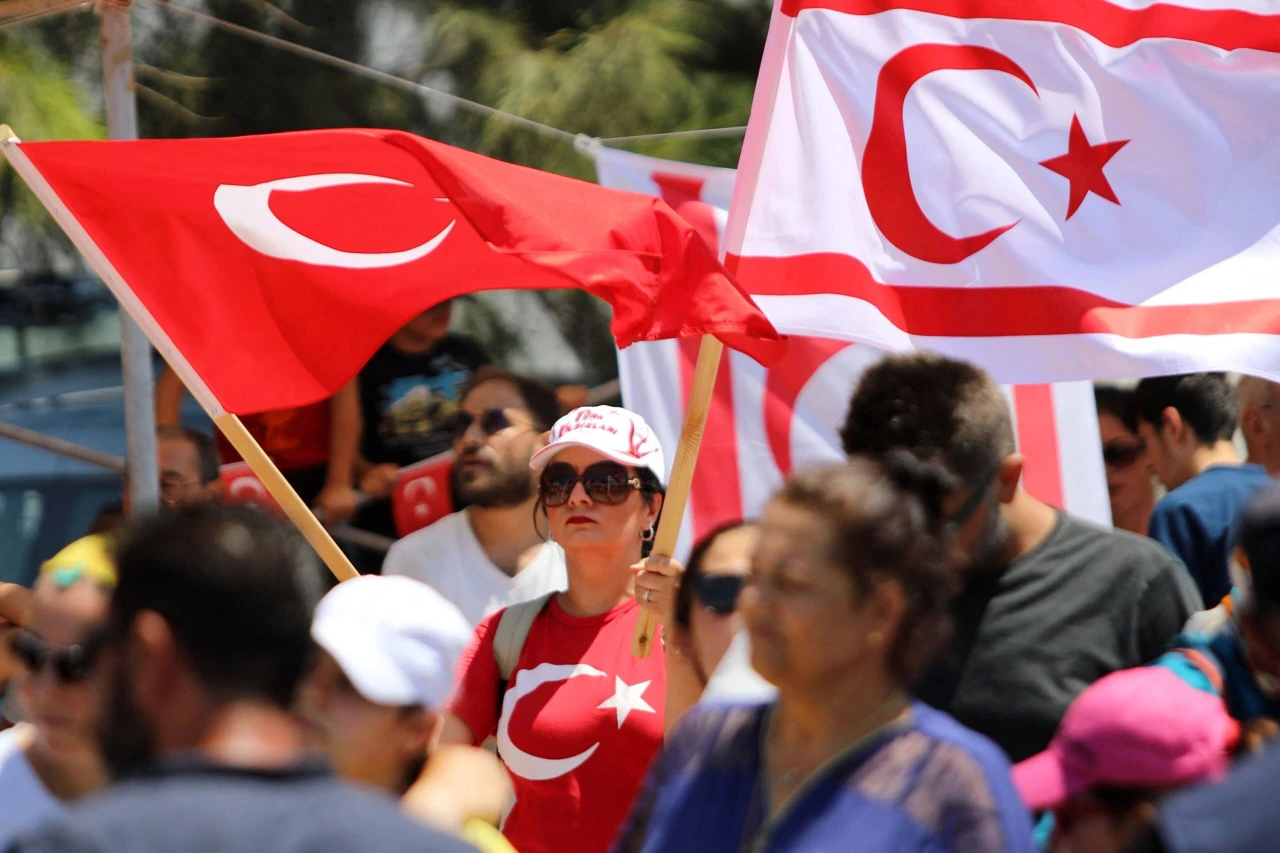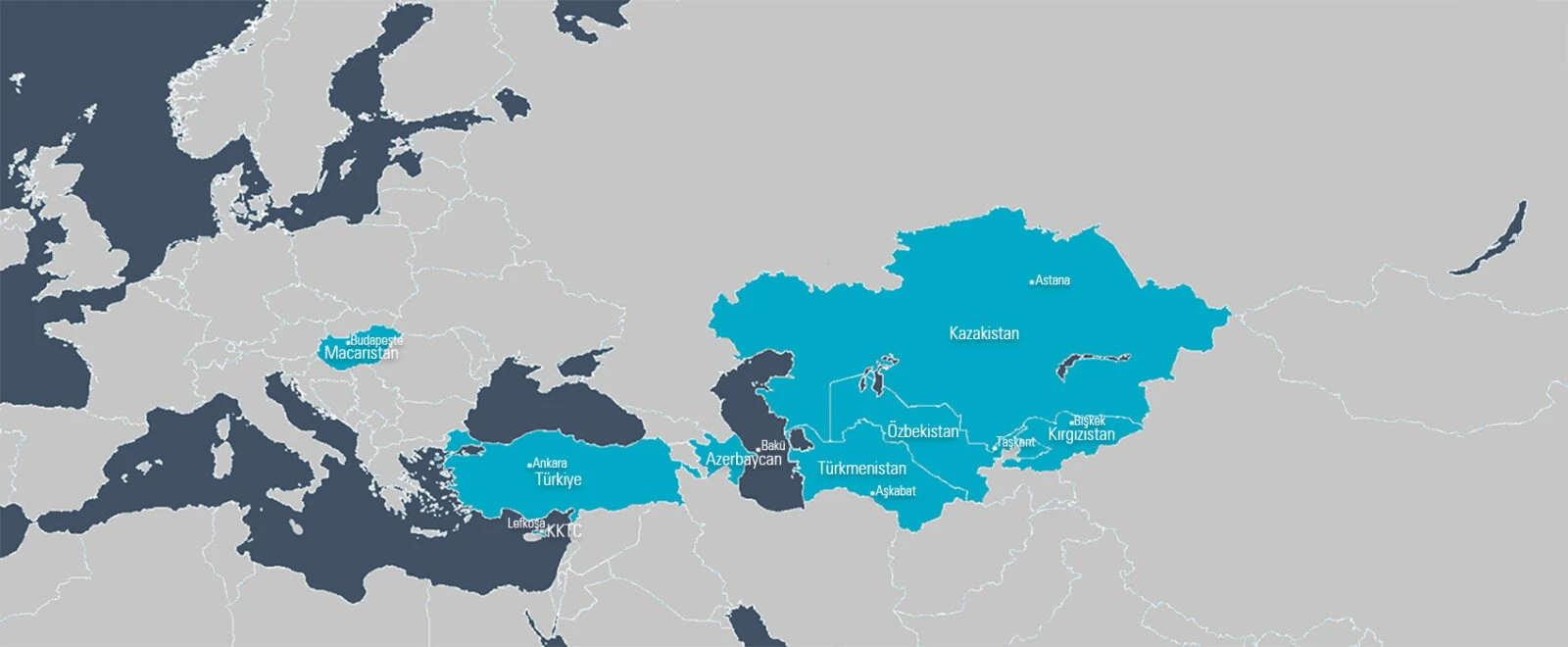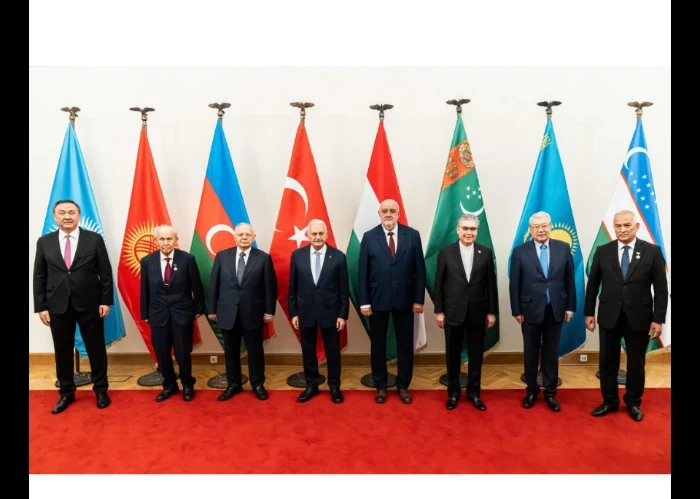Turkic States’ ‘Council of Elders’ heads to Turkish Cyprus
 People wave Turkish Cypriot (R) and Turkish flags during a military parade on the anniversary of Türkiye's Peace Operation, Lefkosia (Nicosia), Turkish Cyprus, July 20, 2024. (AFP Photo)
People wave Turkish Cypriot (R) and Turkish flags during a military parade on the anniversary of Türkiye's Peace Operation, Lefkosia (Nicosia), Turkish Cyprus, July 20, 2024. (AFP Photo)
Following the European Union’s (EU) move to push Turkic nations into opening diplomatic missions in the territory of the Greek Cypriot Administration of Southern Cyprus (GCASC) under the guise of economic cooperation, the first in-person contact of the Organization of Turkic States (OTS) will take place in Nicosia, Turkish Cyprus.
The 17th meeting of the OTS Council of Elders will be held in the Turkish Republic of Northern Cyprus (TRNC) on May 1–2. The most pressing topic on the agenda is the opening of embassies by Kazakhstan, Uzbekistan, and Turkmenistan in GCASC.

EU pressured, threatened Turkic States
There are strong allegations that the support for the relevant sections in the communiqué that pushed for the opening of embassies in Nicosia was because of the European Union’s (EU) economic pressure and that the EU threatened to cut off aid and investments to these countries.
It’s also noted that the EU threatened Uzbekistan with the suspension of the Enhanced Partnership Agreement negotiations and halting of investments. Kazakhstan, too, was reportedly pressured.
Türkiye’s initial reactions to the opening of embassies by Turkic states in the Greek Cypriot sector were conveyed behind closed doors. It was assessed that expressing public opposition would give the Greek Cypriots an advantage. The goal for this first face-to-face meeting in the TRNC is to resolve the issue through quiet diplomacy.
TRNC President Ersin Tatar previously stated that the EU’s main objective with these agreements is to block the TRNC.

Who are the ‘Council of Elders’?
The Council of Elders (“Aksakallar Konseyi”), also known as the Assembly of Wise Men, is a key advisory body established by the Organization of Turkic States to foster intergovernmental consultation.
The council is named after the depiction of the elder wise man; as such, “aksakal” means “white beard” in joint Turkic folk culture.
The council is made up of “aksakal” representatives (respected elders) selected from the core member states: Azerbaijan, Kazakhstan, Kyrgyzstan, Türkiye, and Uzbekistan. Hungary participates as an observer member.
In 2006, then-President of Kazakhstan Nursultan Nazarbayev proposed the idea of such a council under the Organization of Turkic-Speaking Countries.
The council was officially established with the signing of the Nakhchivan Agreement during the 9th Summit of the Heads of State of Turkic-Speaking Countries on Oct. 3, 2009.



